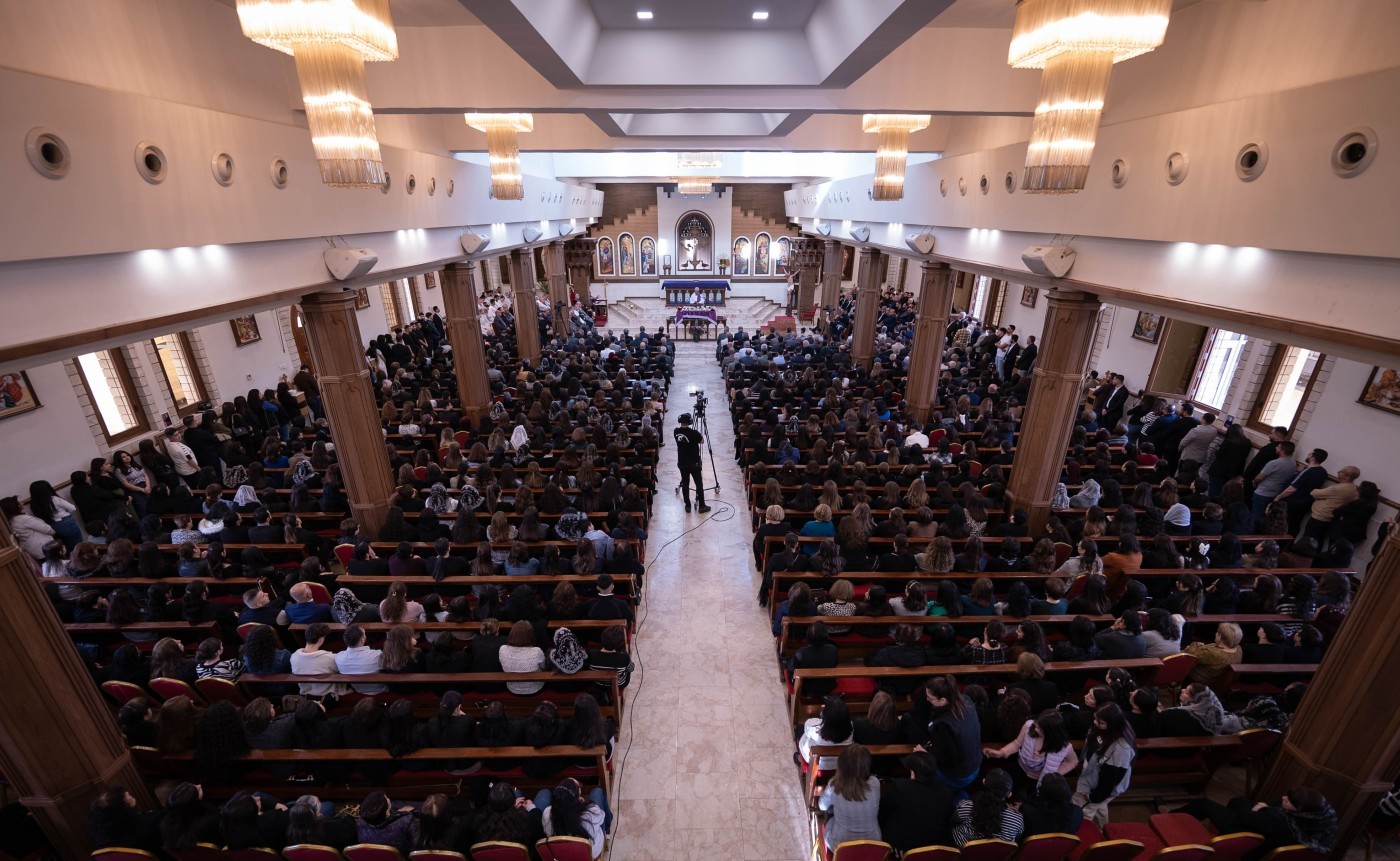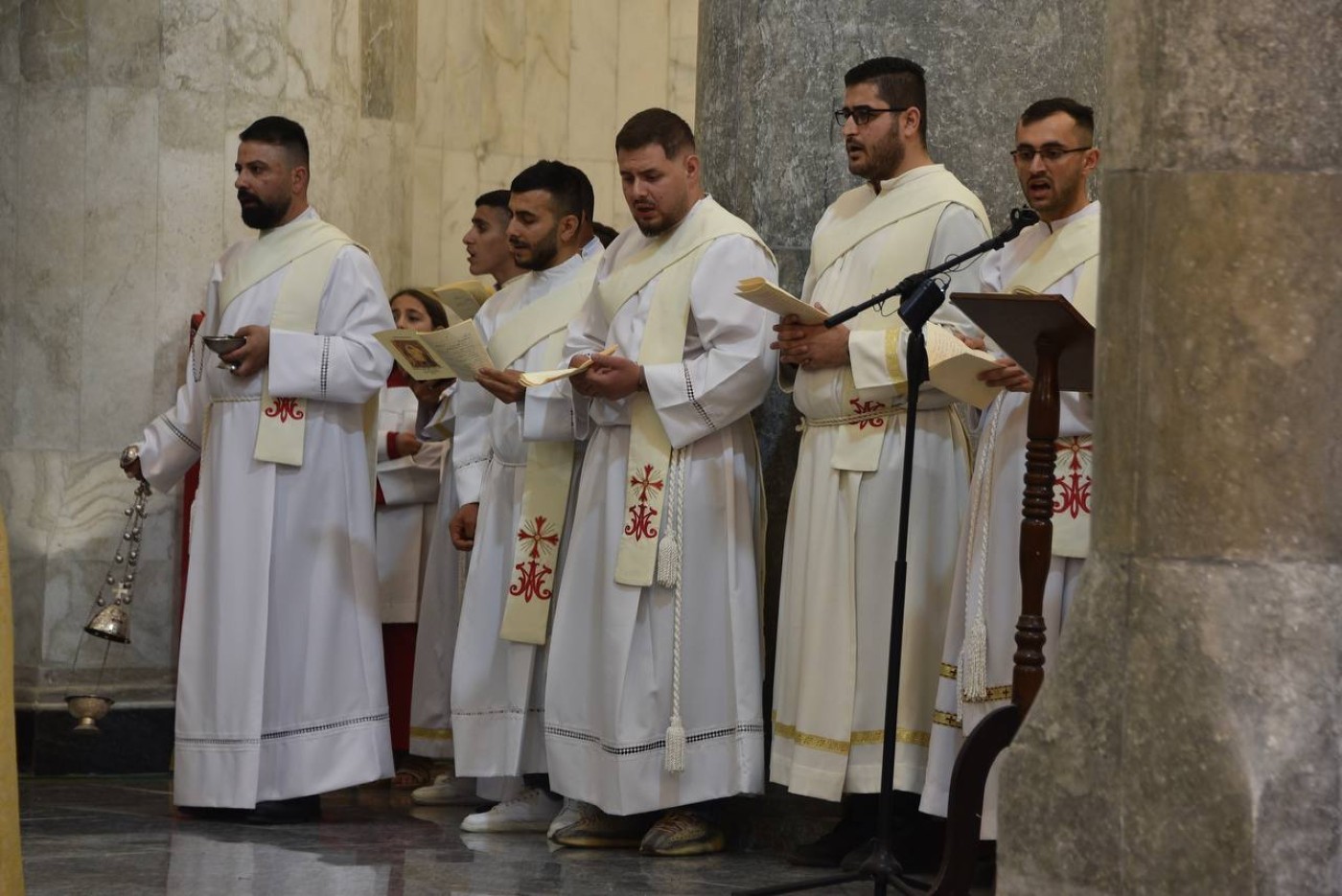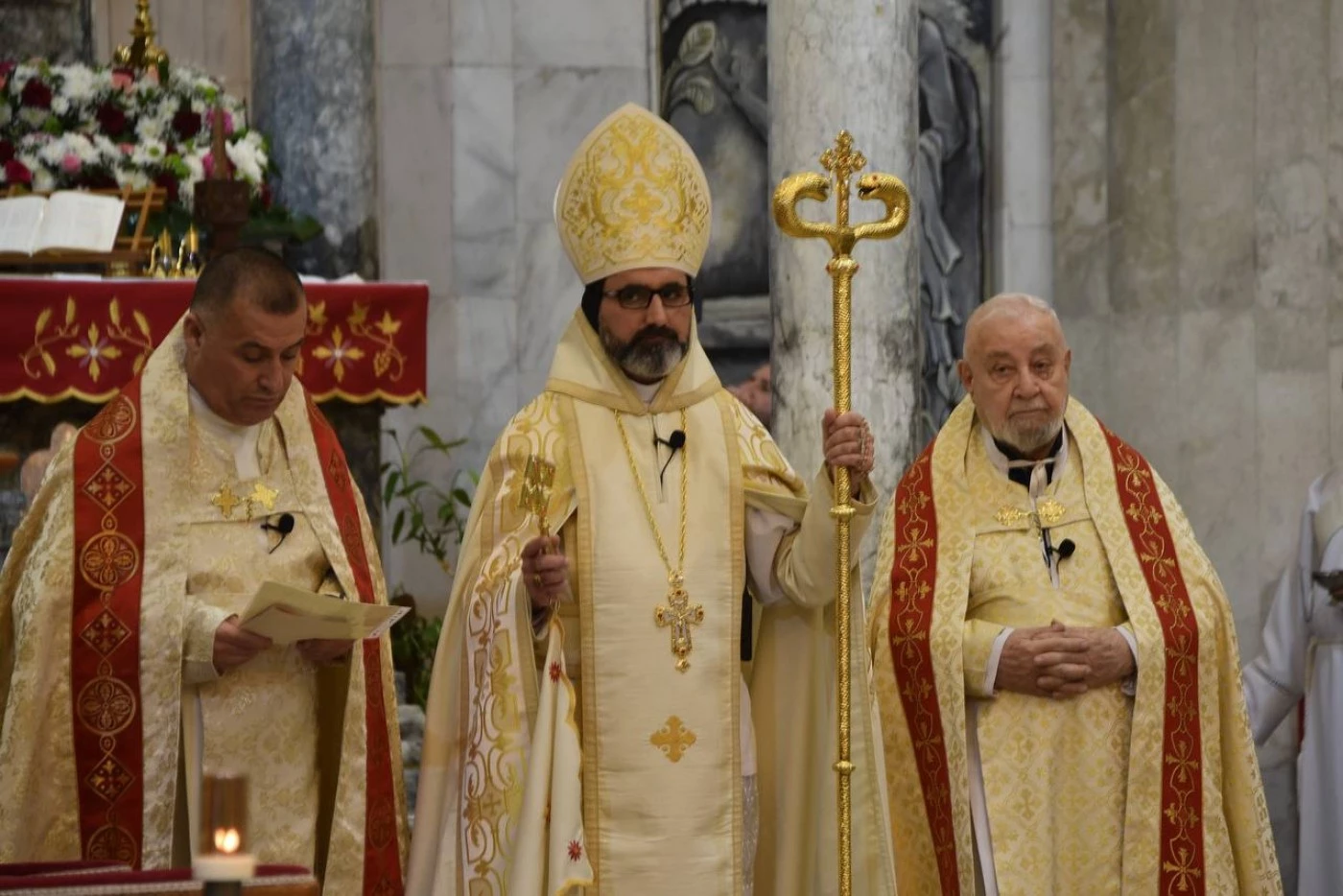Once a thriving part of Iraq's social fabric, Christians have been reduced to a minority following conflict, marginalization, and the confiscation of their properties. Their population in Baghdad has fallen to roughly 150,000 from over 1.25 million.
Their presence is remembered in every neighborhood they once called home, from Baghdad to the northern and southern regions of Iraq. They have faced immense hardships, from the 2010 bombing of Our Lady of Salvation Church in Baghdad's Karrada district, through the turmoil of al-Qaeda and ISIS, to the 2023 Hamdaniya fire in Nineveh.
Nearly a decade ago, Mosul was emptied of its Christian population for the first time when ISIS took control in 2014. The terrorist group forced Christians to choose between converting to Islam, paying a tax, or facing execution, prompting a mass exodus.
Many Christians were killed, thousands fled, and those who remain live in harsh conditions exacerbated by a lack of law enforcement and widespread violence in various parts of the capital.
Christians in Iraq face challenges similar to those of other communities, but they suffer more intensely because of an oppressive quota system that has marginalized them. This system has led to the emigration of many skilled individuals due to discrimination and sectarian and political divides, says Yonadam Kanna, a former representative of the Christian community.
Christians in Erbil’s Ainkawa district gathered at the Saint Joseph Church commemorating the Crucifixion of Jesus on what is referred to by Christians as Good Friday.
150,000 Christians in Baghdad
"Before 2003, Baghdad was home to about half a million Christians," Kanna tells The New Region. "Now, there are fewer than 150,000 Christians remaining. The total number of Christians in Iraq has dwindled to less than half a million, largely due to the wars with al-Qaeda and ISIS, as well as targeted campaigns of forced displacement."
Kanna notes that the lack of law, equality, and justice has worsened the plight of Christians in Iraq, especially in Baghdad. The absence of legal authority has accelerated extortion, organized criminal gangs, and the seizure of property. Most of the property of Christians who have left Iraq have been taken over by non-Christians.
In August 2023, Ayatollah Ali al-Sistani, Iraq's top Shiite cleric, denounced the unlawful seizure of lands in the upscale Jadriya neighborhood of Baghdad by influential groups which disregard the law.
Sistani's condemnation followed a meeting with Jadriya residents who had gone public with their complaints about being pressured and threatened to give up their land to these groups. In a statement from his office, Sistani called these actions "a violation of both religious and civil law," stressing that "one of the main responsibilities of those in power is to safeguard the property and rights of citizens and to confront those who attempt to violate them through terror and intimidation, particularly those in official capacities."
Sistani's statement prompted both official and public reactions to the phenomenon. This is especially noteworthy because the supreme religious authority in Najaf had been silent on such issues since late 2019. According to Sistani's representative in Karbala, Abdul Mahdi al-Karbalai, during a Friday prayer sermon, Christian "voices had grown hoarse" from speaking out.
Abandoned and alone
Yonadam Kanna highlights that "Christians endure greater hardships compared to other groups, as the Shia, Sunnis, and Kurds have their supporters in power."
Kanna also addressed the revocation of the presidential decree for Cardinal Patriarch Louis Raphael Sako, attributing it to "political and partisan pressures designed to undermine and marginalize the Christian community."
Last year, Iraqi President Abdul Latif Rashid issued a decree to annul Presidential Decree No. 147 of 2013, which had appointed Patriarch Louis Sako as the Patriarch of the Chaldeans in Iraq and worldwide, as well as the custodian of its endowments.
The Iraqi Gazette, in its issue No. 4727 dated July 3, 2023, published Presidential Decree No. 31, which rescinded Decree No. 147 of 2013 concerning Cardinal Louis Sako.
In response, Cardinal Sako released a video message stating, "The President of Iraq, who took an oath to protect the Constitution, has violated both the constitution and the law. In countries where the law is upheld, this means that power belongs to the people, but sadly, this is not the case in our country.
"The president's decision to revoke the presidential decree issued ten years ago, which appointed me as the head of the Chaldean Church, is a clear violation of constitutional and legal principles."
Cardinal Sako highlighted that if President Abdul Latif Rashid were truly committed to the constitution, particularly Article 184, he would have renounced his British citizenship.
As a key figure for Iraq's Christian minority, Cardinal Sako played a pivotal role in organizing Pope Francis's historic visit to Iraq in 2021.
Yonadam Kanna also expressed frustration over the investigation into the Hamdaniya fire. "The investigation was wrapped up in less than two days," he said. "No concrete results were presented, and it was dismissed as an act of fate, which is not true. The issue was ultimately brushed aside."
The Hamdaniya fire, which swept through a wedding hall in Nineveh province, was a devastating event for Iraqi Christians. It claimed the lives of more than a hundred people and left over eighty others injured.
80 percent have left Iraq
Martin Hermiz Dawood, spokesperson for the Endowment of Christian Religions, explains to The New Region, "Following the fall of Saddam Hussein's regime and the ensuing challenges, 80 percent of Iraq's Christian population has emigrated due to the wars and threats they faced."
According to Dawood, the last official census in 1987 recorded 1.35 million Christians in Iraq. Today, that number has dwindled to approximately 200,000.
Dawood also laments the numerous violations of Christian properties over the years and the forgery of real estate contracts both in Baghdad and beyond.
Dawood observes that the demographic shift in Baghdad's Christian communities is not a recent phenomenon. Christian emigration has occurred in waves over the past century, with a notable migration from southern Iraq to the north after 2003.
Iraq is home to 14 Christian denominations, with the majority living in Baghdad, Nineveh province, and the Kurdistan region.
Among these denominations, the Chaldeans are the most prominent, making up about 80% of Iraq's Christian population. The Chaldean Church, established in Mesopotamia (now Iraq) in the first century, follows the Eastern rite of Catholicism while preserving its unique rituals and traditions.
Syriacs account for approximately 10% of Iraq's Christian population. Most Syriacs are Catholics, with a smaller portion being Orthodox. The largest Syriac communities are found in the northern towns of Qaraqosh, Bashiqa, and Bartella.
Syriac Catholic Christians gathered in Bartella, Nineveh. (Photo: Zaid al-Obeidi)
Assyrians comprise around 5% of Iraqi Christians, including Catholic Assyrians. Many Assyrians came to Iraq from Iran and Turkey during World War I.
Armenians represent about 3% of Christians in Iraq. Many Armenians sought refuge in Iraq following World War I and continue to speak Armenian.
Lastly, the "Arab and smaller groups" denomination includes Arabs, who make up roughly 2% of Iraq's Christian population.
From native majority to marginalized minority
Christian activist Hind Al-Sanati also expresses concern over the drastic reduction in Iraq's Christian population. Speaking to The New Region, she explained, "Our numbers were once substantial, but displacement, persecution, and violence have significantly diminished our community, forcing many families to emigrate.
"It's disheartening to see that we've become a minority in our own homeland. Areas of Baghdad that once thrived with Christian communities, such as Dora, Karrada, Saidiyah, Baghdad al-Jadida, Zayouna, Ghadir, and Zaafaraniya, are no longer the same."
Al-Sanati also notes that "unscrupulous individuals and influential figures in the government have taken over the properties of Christians who have left Iraq, further compounding their suffering."
A report from the Iraqi Human Rights Commission, released in March 2021, revealed that Iraq's Christian population had dwindled to 250,000 from 1.5 million prior to 2003. The report detailed that from 2003 to 2014, 1,315 Christians were killed, 130,000 were displaced, and 161 were kidnapped during ISIS's control of Mosul between 2014 and 2017.



 Facebook
Facebook
 LinkedIn
LinkedIn
 Telegram
Telegram
 X
X


